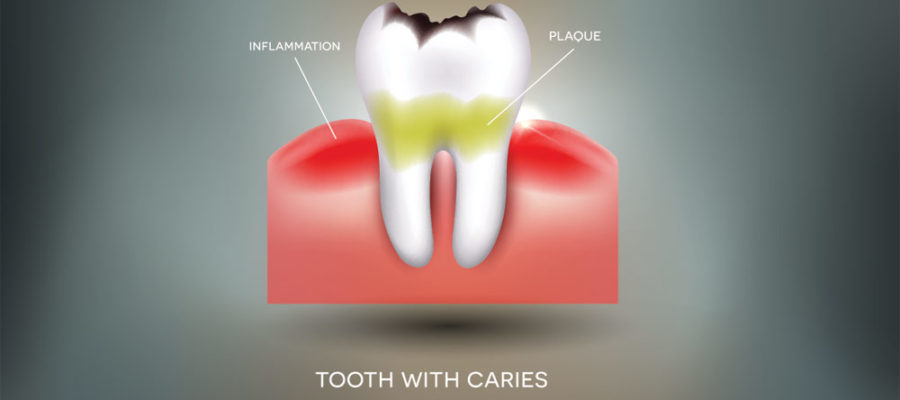The first week or two of wearing braces is usually the most uncomfortable and requires the most adjustment of any other time of wearing braces. You are likely to feel a little bit sore, but the soreness does patch and eventually you may even forget that you are wearing braces. Once you’ve gotten past the first week of braces, the rest of your treatment is smooth sailing. In order to help you know what to expect and how to adjust to your new brackets, wires, and bands, we have a few tips and tricks to make sure the adjustment period is as simple and easy as possible.
Before You Leave the Office
Before you walk out the door, we are probably going to ask you to check the ends of your wires and all of the brackets, to make sure that you are not getting poked. We have been as careful as possible when applying the brackets and inserting the wire, but only you can really tell us whether or not everything is in the most optimal position. Use your finger and your tongue to make sure that nothing is poking you.
Another thing that we need to do before you leave the office is make sure that you have all of the supplies you need for your first stage of treatment. This will range from wax (which you can use to cover brackets or wire tips if they are poking or scratching you), to the little tools we give you that should make cleaning your teeth and braces much easier, to the bands that you will use as part of your treatment.
The last thing you do before leaving our office is to make your next appointment. Be mindful of your school or work schedule so we can be sure to get you in at a time of day and on a day where there will be no conflicts. We will usually want to see you every month or month and a half, so choose a day and a time that works for you before beginning treatment and clear it off so that you will always have time for your orthodontist.
When You Get Home
You will probably already start to feel sore before you leave the office. Putting on the brackets and setting the first wire is a strain on your mouth. As the teeth begin to move, the teeth themselves, your jaw, and your gums will feel achy and maybe a little sore. If you are already starting to feel these symptoms, take your preferred medication to help mitigate the pain. Taking a medication can prevent discomfort and pain during the first few days, and especially when you first get home from the office. A saltwater rinse, made from warm water and salt, can also be used to help mitigate soreness in the mouth.
You are free to eat as soon as you leave the office, but we do recommend that you stick to softer foods, especially on the first few days as you and your teeth adjust to the metal or ceramic in your mouth. Most of our patients stick to pudding, bread, soft vegetables, soup, and yogurt as they wait for the soreness to go away. Going too quickly into more “difficult” foods could prolong the pain and soreness that is common at the beginning of your treatment.
The First Few Days
Stay on the softer foods diet for the first days. Clean your teeth after every meal, clearing away extra bits of food that may get stuck to your braces. It is extremely important to get into this habit as early as possible, so that you do not run into dental problems down the road. After three or four days, the soreness of the newly applied braces should be completely gone, and you can graduate to those “more difficult foods.” We do ask, however, that you continue to avoid the foods on the do-not-eat list, as these, even after the first few days, are likely to cause damage to your teeth or braces.
Over the first few days and weeks, calluses will be forming in your mouth, on the soft skin that rubs against your brackets. While the brackets are designed to be gentle on the mouth, they might still cause some irritation, simply because of how they are designed. The skin will toughen up over time, but it may be helpful to apply some of the wax you were given to the brackets to prevent this irritation. As the skin toughens, it will eventually become immune to these irritations, which is especially great if you play a wind instrument like a trumpet or saxophone that requires the instrument to be pressed against your lips.
Continue to care for you braces, using the toothbrush, floss, and proxy brush you were given. Take it to school and make sure to use it after lunch to keep your braces clean. Making sure you are brushing and removing any food particles that can get trapped on a bracket or behind a wire, will mean stronger, healthier teeth in the long run.
What to Do in an Emergency
Though it is not likely, you might have a bracket break or a wire shift during the first week of your treatment. If this happens, just make an appointment with our office and we will reattach the bracket or move the wire back into position.



